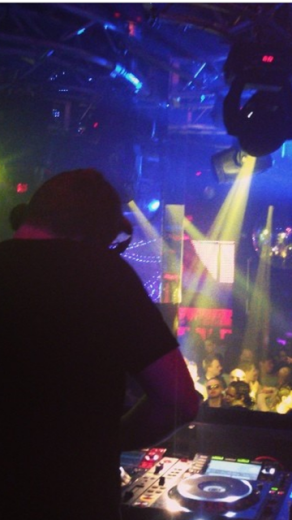The Tribune interviews DJ-producer, Chris Lake
House DJ Chris Lake, who also currently works as a producer in the music industry and as the head of Rising Music Label, recently sat down with the Tribune to speak about his music, success and inspirations following a show March 22 in New York City as part of his Helium tour. Where do you get your musical inspiration from? I got it from my mum because she was always the one listening to music in the house. She listened to all sort of ‘80s pop bands, you know? We listened to a lot of Pet Shop Boys growing up—really really not cool. Who else? George Michael, all [sorts of] things like this. I know a lot more artists that are much much cooler (laughs), but I had Pet Shop Boys growing up.
So you have a British accent, and you have a Scottish background--how does that impact your music inspiration? Well, I moved to Scotland when I was about 12, that's why I sound a little bit Scottish and confused. But I'm English.
...
It makes me a snob. Because British artists are very highly opinionated and we are quite used to being in a position where we think we are musical leaders and that we have a higher opinion than everyone else. It makes us all music snobs.
You've done a couple of tours at this point. What was that like? Well, it's great--you get to play to lots of people...if they turn up, and luckily, they do. So it's lots of people from lots of different cities and lots of different countries. And you get to see lots of different variations of drunk people. The one thing I find in life is that most drunk people are generally the same—annoying and intolerable.
What artist inspires you the most? I guess the ones who inspire me the most are the ones I really don't feel like I can equal or surpass. So the artists that stand out to me are the old guys from the U.K., like "The Chemical Brothers" or "The Prodigy," and then there's more chill out stuff like "Massive Attack" and "Air from France"--(laughing) the best thing to come from France, actually.
You've worked with a number of artist including Steve Aoki, what was that like? It was a lot of fun--he has plenty of energy. He's a great person to work with.
You run a couple of label records, which you began yourself. How did you start them up, and how did it work out ? Setting up a label just happened. I made a record label just to have an outlet for my own tracks, and honestly it wasn't anything serious till it started becoming successful. But I [decided then that I] better start upping my game and start taking it seriously, so I started taking it seriously and started signing in some other artists and help them develop and then more and more people started to notice the label, and with that comes the responsibility of keeping up the good work. So I've been doing Rising Music for now seven years.
What does that entail? That entails finding new music, deciding if it's good and deciding if it's sh*t (laughs). If it’s sh*t you ignore it, if it's good you beg for it. And then you try and sign the records, and when you sign the records, you put them on the label, you promote them, you get remixes on them and hopefully people listen and fortunately they do. Then they go download it for free....
In addition to performing as a house DJ, you're also a producer. How do these differ from one another? So [in] one you make records, and one you play records.
Do you prefer one over the other? Not really, no. They're both really fun, the one big difference is that when you make a record, when you finish it and it's really good, there's a good chance that when you go to bed on a Saturday night, there's a good chance that thousands and thousands of people are dancing to your record before going to sleep. Having said that, when you DJ, you physically have to be DJ-ing to make people dance. So I like the fact that making a record requires very little effort afterwards, whereas DJ-ing you have to work very hard.
What do you expect people to get out of your music, whether they're listening to it at him or live at one of your shows? That they have a connection to the music. It doesn't really bother me if people don't like the music, [but] I'd rather they did like the music of course and connect to it and have an emotional response to it. Whenever I listen to a song that means something to me I can picture a time in my life when I first heard it.


